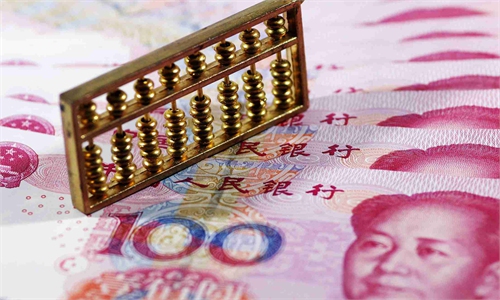Growth of China’s retail sales in Jan-May 3.5 percentage points faster than Q1: NBS data

People select food at a supermarket in Xixiu District of Anshun, Southwest China's Guizhou Province. File Photo: Xinhua
Consumption, a major driving force of domestic economy, picked up momentum in May, playing a stronger role in Chinese economic growth, according to latest official data.
Retail sales, a key gauge of consumption, jumped 12.7 percent in May year-on-year, slowing from the 18.4 percent gain in April, according to data released by the National Bureau of Statistics (NBS) on Thursday. In terms of month-on-month growth, the figure picked up 0.42 percent compared with April.
In the first five months of the year, total consumer retail spending hit 18.76 trillion yuan ($2.6 trillion), up 9.3 percent from a year ago, accelerating 0.8 percentage points compared with that of the January-April period and 3.5 percentage points compared with that of the first quarter, NBS data revealed.
"Judging from the situation in May, consumption continued to maintain rapid growth. Although it has dropped from the previous month, this is mainly due to the high base of the same period last year, and the market sales have grown steadily," Fu Linghui, a spokesperson from the NBS, told a press conference on Thursday.
The services industry recorded strong performance over the first five months, during which national box office revenues increased by more than 40 percent year-on-year, while catering revenue jumped 22.6 percent.
The May Day holidays injected impetus into the Chinese consumer market with a total of 274 million domestic trips made and domestic tourism revenue reaching 148 billion yuan, both cases surpassing 2019 pre-COVID levels.
"Since the beginning of this year, China's consumption potential has been gradually released, and its role in stimulating economic growth is obviously becoming more prominent," Fu said, adding that the overall improvement in employment at present is conducive to increasing residents' incomes and consumption capacity, boosting the economic rebound.
The official also acknowledged some "constraint factors" that are dragging domestic consumption.
"In the next stage, it is necessary to continue promoting stable economic growth, employment and prices, implement various policies to promote consumption, actively restore and expand traditional consumption, and accelerate the cultivation of new types of consumption," Fu noted.
Despite the objective challenges faced by domestic economy, the overall pace of the economic rebound and its internal momentum should not be questioned or ignored, experts said, disputing the tone that some Western media have used in hyping risks associated with China's economy, claiming that the recovery of the world's second-largest economy is losing momentum.
"We are not losing recovery momentum, only the momentum is showing differentiation. For example, services industries that were severely affected by the pandemic will continue to recover, as will domestic consumption, which will provide a better driving role for the economy," Wu Chaoming, deputy head of the Chasing Research Institute, told the Global Times.
"Judging from the current situation, due to the low base last year, economic growth in the second quarter was significantly faster than that in the first quarter," the NBS official said.
In the third and fourth quarters, with the improvement from last year's base, economic operation will return to normal growth levels, he said. "For the full year, there are many favorable supports for the economy to achieve the expected development goals."
China has set a growth target of around 5 percent for 2023.
The World Bank last week forecast that China's economy will grow at 5.6 percent this year, up by 1.3 percentage points from its January forecast.
Global Times



